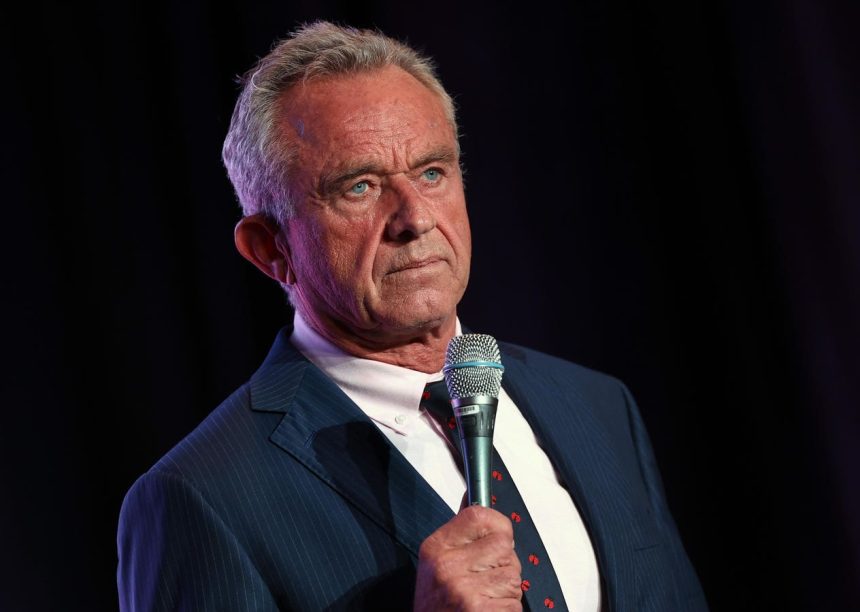Robert F. Kennedy Jr.’s nomination as head of the Department of Health and Human Services (HHS) has sparked considerable debate, centered primarily on his long-standing anti-vaccine stance. While Kennedy has attempted to downplay this aspect of his public persona during his confirmation hearings, focusing instead on chronic disease prevention and echoing President Trump’s position on abortion, his history of anti-vaccine advocacy casts a long shadow over his potential leadership of a critical health agency. His two-decade involvement in the anti-vaccine movement, including his association with discredited figures like Andrew Wakefield and his leadership of the organization Children’s Health Defense (CHD), raises serious concerns about his suitability for the position. CHD has been identified as a major source of vaccine misinformation, further fueling public anxieties and contributing to declining vaccination rates.
The historical context underscores the importance of vaccination programs in public health. Over the 20th century, the average American lifespan increased dramatically, with public health measures, including vaccination, playing a crucial role. Diseases like diphtheria, pertussis, tetanus, polio, measles, mumps, and rubella, once major threats to children’s health, were significantly curtailed, even eradicated in some cases, thanks to widespread vaccination. A comprehensive study analyzing disease data from 1888 to 2011 demonstrated the direct correlation between vaccine introduction and disease decline, estimating that vaccinations prevented over 100 million cases of contagious diseases in the United States. This progress highlights the vital role of vaccines in protecting public health and preventing widespread suffering and death.
The success of vaccination programs has, ironically, contributed to a growing complacency and even resistance to vaccines in recent years. As the memory of devastating outbreaks fades, some parents have become more focused on perceived risks of vaccines, often fueled by misinformation and unsubstantiated claims. This shift in public perception, exacerbated by online platforms spreading false narratives, has led to a decline in vaccination rates, threatening the hard-won herd immunity that protects communities from contagious diseases. The clustering of unvaccinated individuals in specific communities further amplifies the risk, creating pockets of vulnerability where outbreaks can easily take hold. This trend underscores the urgent need for evidence-based public health messaging and policies to counter misinformation and ensure continued high vaccination rates.
Kennedy’s past actions and statements contradict the established science supporting vaccination. He has endorsed theories linking vaccines to autism and other chronic diseases, despite these theories being thoroughly debunked by scientific research. His association with the anti-vaccine movement and his leadership of an organization actively spreading misinformation raise legitimate concerns about his potential influence on vaccination policy. Appointing someone with such a history to lead the HHS could undermine public trust in vaccines, further eroding vaccination rates and potentially leading to the resurgence of preventable diseases. The Nobel laureates’ letter expressing their concerns about Kennedy’s nomination underscores the gravity of the situation and the potential consequences of placing him in charge of a crucial public health agency.
The potential implications of Kennedy’s leadership at HHS are far-reaching. His influence could extend to altering established vaccination schedules, defunding critical vaccination campaigns, and promoting unsubstantiated claims about vaccine safety, all of which could have devastating consequences for public health. A decline in vaccination rates could lead to outbreaks of preventable diseases, resulting in increased healthcare costs, unnecessary suffering, and even death. The Senate faces a crucial decision: weighing political considerations against the potential risks to public health posed by Kennedy’s appointment.
The confirmation of Robert F. Kennedy Jr. to lead the HHS represents a critical juncture for public health in the United States. His history of anti-vaccine advocacy, coupled with his promotion of scientifically discredited theories, raises alarming concerns about his ability to effectively lead the agency and protect the health of the American public. The Senate must carefully consider the potential consequences of his appointment, recognizing the vital role of vaccines in safeguarding public health and preventing the resurgence of preventable diseases. The decision to confirm Kennedy could have a profound and lasting impact on the nation’s health and well-being.



